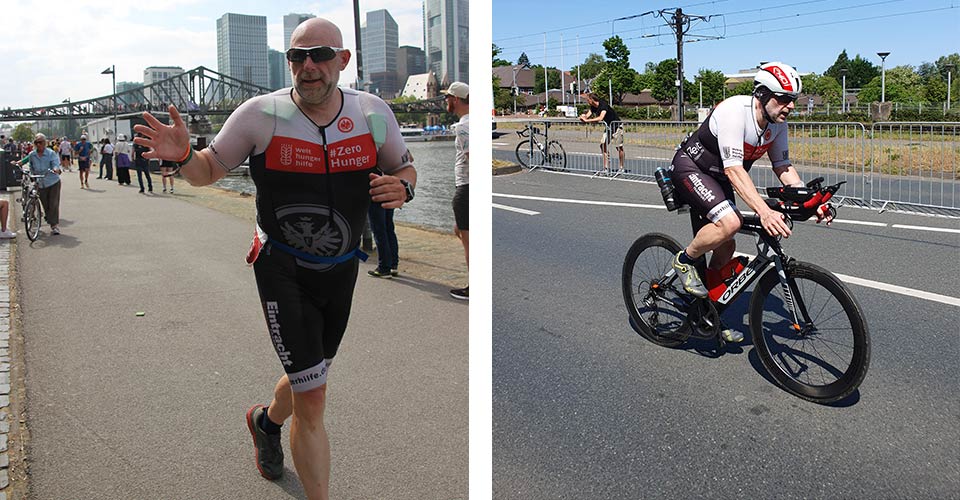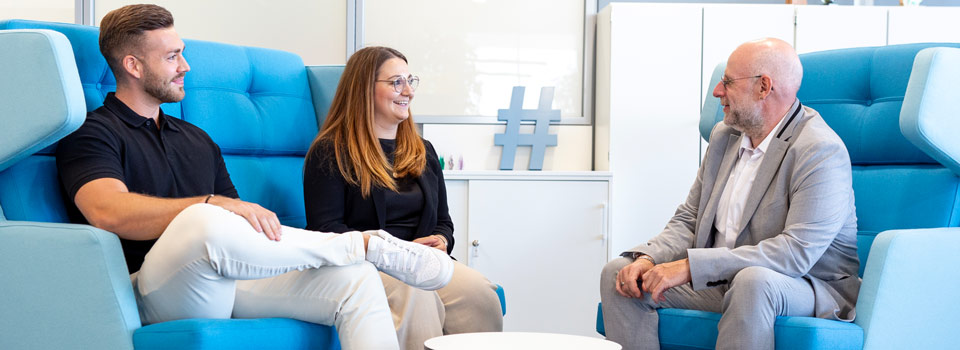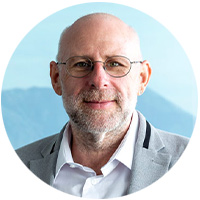Anything but ordinary – From 170 to Iron Man.
“That is completely unrealistic” he said when he heard the idea for the first time. Running an Iron Man? Impossible, he thought, until he went and did it. Four years ago, Martin Mollet weighed 170 kilos—now he is an enthusiastic triathlete. The 48-year old shares how he turned his life around with the help of sports while combining it with his job as a Managed Services Consultant at Bechtle.
Written by

It was important to me that I could choose when and where I work flexibly in order to accommodate both my career and training. This is something that a lot of other companies could not offer me and I’m overjoyed that Bechtle helped me balance my lifestyle the way I see fit.
I’m part of the IT transition project in production for a large German automotive company, which is very exciting. Four other employees and I are responsible for what is called an application stream. That means we are preparing the company’s adoption of almost 50 applications and have the task of checking if the documentation provided is sufficient, providing missing knowledge, preparing workshops and planning our colleagues’ on-site visits to the customers’ premises.
The large amount of individual freedom at this company. From very early on, I was shown a lot of trust and got to take on a lot of responsibility. But also the sense of camaraderie among my colleagues. I’ve never experienced a company that is so strongly focussed on networking. For example, we recently had a meeting in the consulting community with around a hundred colleagues. It was such an interesting exchange. What I also like is that professional development is also promoted, which I think is really important in our sector. I felt right at home from day one.

With an iron will. I was always the fat guy, ever since I was a child. It got to the point in 2017 that I felt some pain while out walking. It dawned on me that I would soon have to be taking blood pressure medication if I didn’t change anything. I didn’t want that to be my reality. Going on meds was not an option. It quickly became clear that something had to change. So I started walking everyday, no matter what time or what weather.
In the beginning I didn’t really have a goal, which was a problem. So I set myself the aim of losing enough weight to get down to 125 kilos in nine months. Once I achieved this I began to look for other goals. Then I found out about the German Sports Badge which includes walking, swimming, cycling and other disciplines. Later on, someone said to me: “You can run, cycle and swim, why don’t you do a triathlon?” I told him that’s crazy and totally pie in the sky.

Limitations are there to be surpassed. Once you have a clear goal and good planning, you can achieve more than you think.
Martin Mollet
Exactly. I couldn't get the thought out of my head. With the right preparation and diet, maybe I could do it. When I one day achieved the sprinting distance, that felt indescribably good. And that gave me the taste. I moved on to short, then middle and then long distance running. Somewhere along the way I discovered Aquabiking—a triathlon without walking where I even participated in the long distance world championships. Something I noticed time and time again was that limitations are there to be surpassed. Once you have a clear goal and good planning, you can achieve more than you think.
The injuries were difficult to deal with mentally, but my goals remained the same and I never lost sight of them. I just did what I could. My setbacks and losses have taught me to critically assess the situation I am in and myself, and to always look for something I can do better next time. Analyse, develop, learn. I’ve noticed that I’ve started checking things a lot more thoroughly in my job too. Why did something not work? What part of it was my fault? What can I do differently?
Yes, organisation. Incorporating ten to twenty hours of training into your weekly schedule is a challenge. Juggling between these different things benefits my work. In most cases, my sport is welcomed in the team, which makes me really happy. Triathlon is more than a hobby, it’s a lifestyle. And it can only work if everyone (family, friends and employer) is pulling in the same direction. I’m really glad that it’s working out so well with Bechtle. Next target: Aquabike World Championships 2025 in Spain. And 2026 the second Iron Man in Frankfurt.
